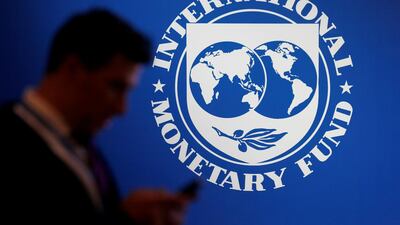Minimum global tax rates can "guarantee a floor" on the contribution that businesses make to public revenues and help to reverse nearly four decades of declining corporate tax rates around the world, according to the International Monetary Fund.
Levying minimum taxes will reduce the incentives for large multinational companies to shift their profits to jurisdictions that look to lure businesses with tax breaks or other concessions.
"There is an unusual tension in the world of corporate taxation. On the one hand, countries compete vigorously to lure businesses and investors within their borders by offering numerous profit- and cost-based tax incentives, driving their tax rates down. On the other hand, governments decry these multinational enterprises – once they have been successfully attracted to the country – for not paying their fair share of corporate taxes, leaving the burden to fall on often-struggling local firms," IMF economists Aqib Aslam and Maria Coelho said in the blog post.
"By instituting a corporate minimum tax rate, governments guarantee a floor on the businesses’ contribution to the public purse," they added.
Countries in the EU and the US have struggled for years to agree a taxation policy that will allow them to raise more taxes from multinationals such as Google and Amazon, which take advantage of low-tax jurisdictions like Ireland. But as the coronavirus pandemic exerted more pressure on state coffers, governments have deepened co-operation and have been chalking out a policy to prevent tax erosion.
Earlier this week, the Group of Seven high-income countries agreed a landmark deal to levy a minimum corporate tax rate of at least 15 per cent.
The plan devised by the group's finance ministers and central banks will lead to "the largest global firms with profit margins of at least 10 per cent" being taxed more equitably, with 20 per cent of any profit above a 10 per cent margin taxed in countries where they make sales, according to the UK's finance ministry.
"The agreement reached by the G7 countries on minimum taxes has provided fresh momentum to the overhaul of international tax rules led by international organisations," Mr Aslam and Ms Coelho said in the blog post.
The proposals will be put to leaders at a wider G20 summit in Venice next month.
The G20 and the Organisation for Economic Co-operation and Development (OECD) had already proposed a global minimum corporate tax on the profits earned by the multinationals last year. These suggested that governments will continue to set their own local tax rates, but if a multinational company paid less than the global minimum rate in their market, that company’s home or source jurisdiction would need to pay an additional tax liability to ensure it paid the minimum global amount. This would reduce the incentive for tech companies and other multinationals to shift to low-tax jurisdictions, the entities said.
The IMF cautioned that tax incentives to attract multinationals are likely to persist as countries try to lure foreign investment.
"But the value of these incentives will decline, as multinationals will only be able to reduce their liabilities to 15 per cent and not zero," the blog post said.
Setting such a floor for corporate tax will help countries to shore up tax revenue without severely damaging corporate activity, the officials said.
"Minimum taxes based on modified corporate income lead to the largest increases in effective tax rates, followed by those based on assets and turnover," Mr Aslam and Ms Coelho said.
"Increasingly, governments are turning to minimum taxes as a means of preserving their tax base. This is particularly true in developing countries with weaker tax administrations, which face major challenges in effectively taxing these large multinationals."


